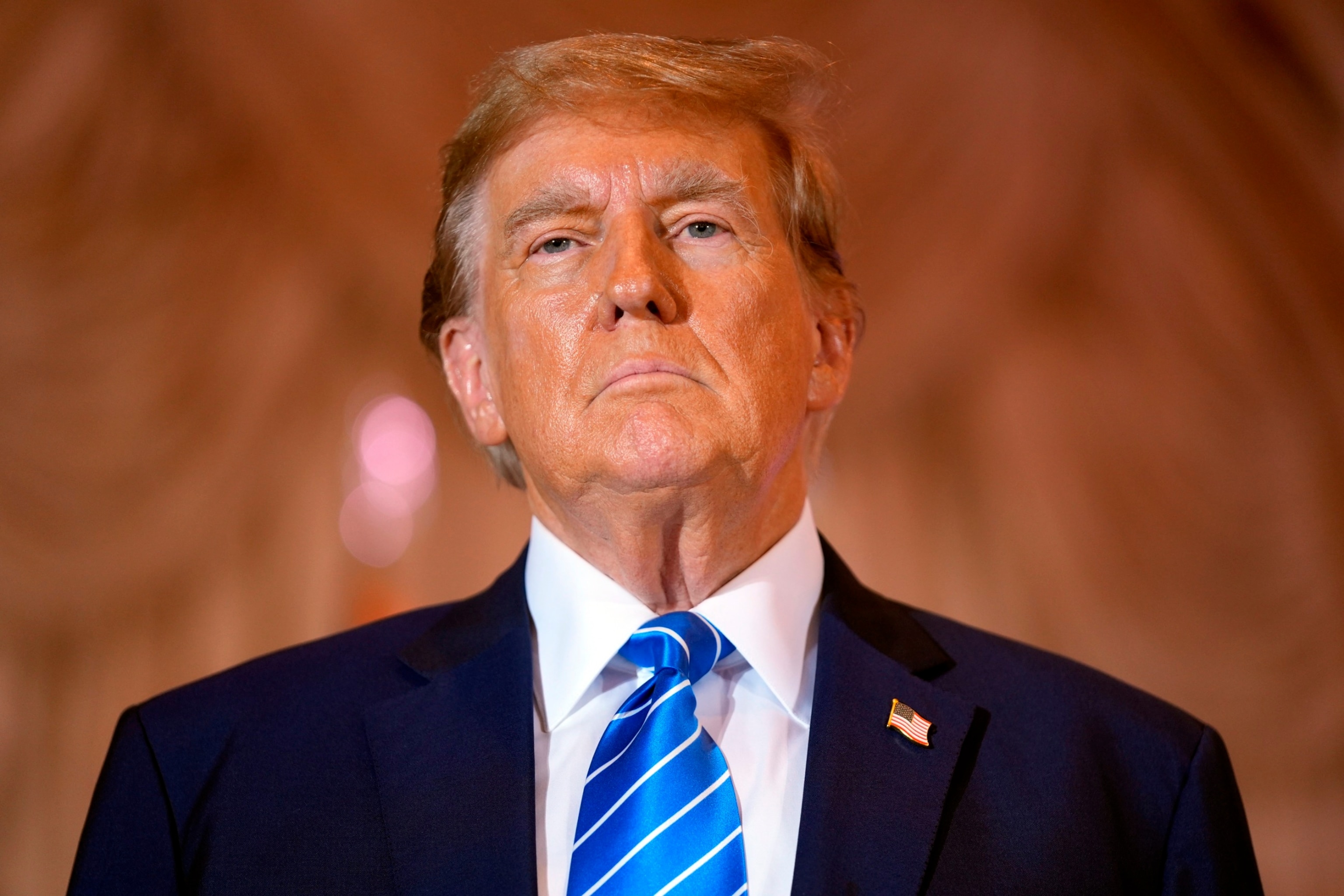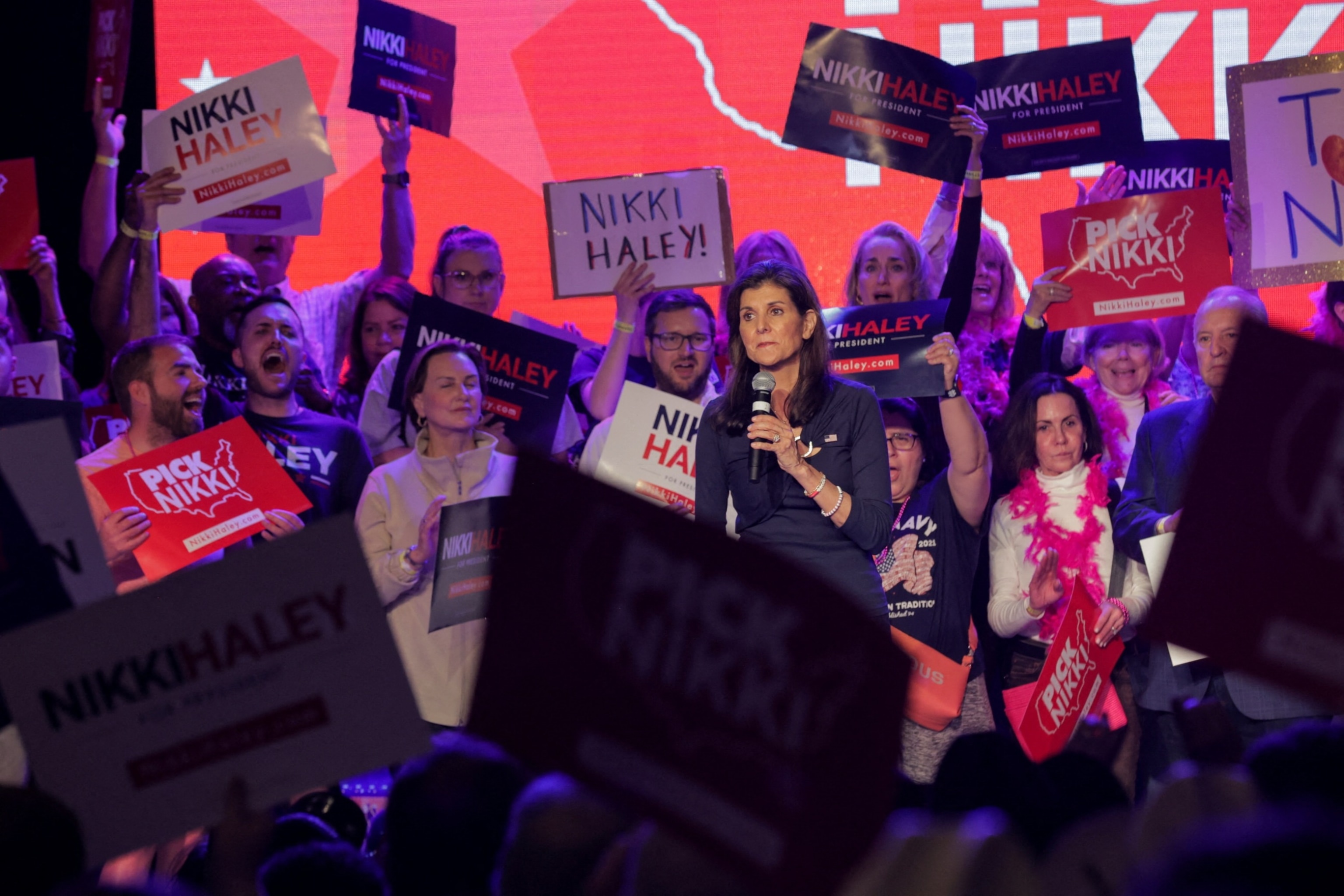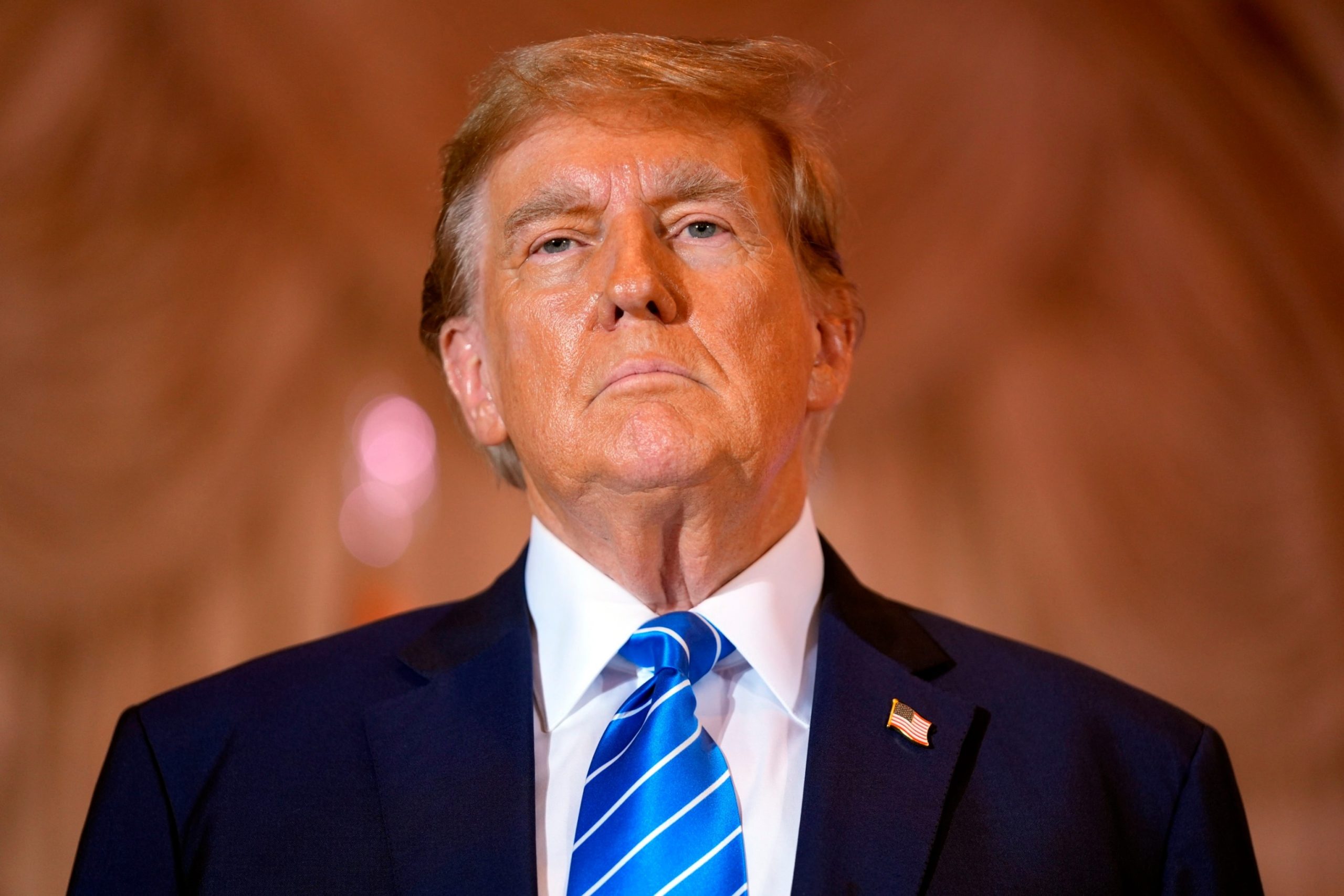Poll after poll suggested, for a while, that voters didn’t want a rematch between Joe Biden and Donald Trump.
But as the primaries got underway over the last two months, each party’s base rallied around the two candidates and, on Wednesday morning, the last real chance of avoiding their matchup slipped away.
With former South Carolina Gov. Nikki Haley’s departure from the GOP primary, Trump’s path to his third straight Republican nomination is unimpeded.
And Biden is coasting in his own primary, despite nominal opposition from author Marianne Williamson and Minnesota Rep. Dean Phillips and some protest votes over his handling of Israel’s war in Gaza. (Williamson suspended and then unsuspended her campaign; Phillips ended his own bid on Wednesday afternoon.)
A Biden-Trump race marks a rare rematch between an incumbent and his predecessor.
But it is anticipated to be dominated much less by the minutiae of differing policy proposals than by the candidates’ well-known public personas and contrasting visions of the country. Trump has hammered Biden over inflation and immigration; Biden has attacked Trump’s efforts to overturn the last election, his role in restriction abortion access and more.
They each have persistent problems in public perception, including low approval ratings.
Biden is bogged down in surveys by worries over his age and fitness for office, an issue he’ll likely seek to quell with a strong State of the Union address on Thursday.
And Trump is facing an unprecedented 91 criminal charges, all of which he denies, and years of trouble wooing independents and swing-state suburban voters — who have in turn helped Democrats notch a string of victories around the country since 2016.
“The results of last night’s Super Tuesday contests cemented what we have known for some time now: Donald Trump limps into the general election as a wounded, dangerous and unpopular candidate. The Republican nominee … is running on an extreme agenda that is already proving to be a significant liability for key voting blocs that are critical to the pathway to 270 electoral votes,” Biden’s campaign wrote in a Wednesday memo.
Trump has spoken just as bluntly.
“It’s the fascists and the communists that surround him, they’re making the calls,” he claimed on Fox News on Tuesday, suggesting Biden is not up for his current or another term. “They’re calling the shots. He’s not calling the shots.”
While campaigning in New Hampshire earlier this year, he said, “I think that Biden is the worst president in the history of this country.”

Republican presidential candidate former President Donald Trump arrives to speak at a Super Tuesday election night party, Mar. 5, 2024, at Mar-a-Lago in Palm Beach, Fla.
Evan Vucci/AP
Despite the rarity of the matchup, this year’s race is set to focus on the same candidates with the same issues and the same list of battleground states (like Arizona, Georgia, Nevada, North Carolina and parts of the Midwest) as in 2020.
This time, though, the general election will go on for a historic period of time — and despite the concerted efforts of Biden and Trump’s critics.
Trump at first faced a crowded field of would-be replacements, drawing rivals from across the GOP’s ideological spectrum.
Former New Jersey Gov. Chris Christie ran as a virulent anti-Trump candidate; Haley, South Carolina Sen. Tim Scott, former Vice President Mike Pence and more ran as establishment Republicans, expressing agnosticism toward Trump while trumpeting policies like fair trade, social conservatism and a muscular foreign policy; and Florida Gov. Ron DeSantis and entrepreneur Vivek Ramaswamy ran in the mold of Trump’s MAGA movement.
None of them succeeded.
As Trump’s advantage with Republican voters only grew, he broke typical conventions, including avoiding primary debates and openly musing about whom he’d pick as his running mate even as the nomination fight was ostensibly still underway.
Many dropped out before the primaries began. DeSantis and Ramaswamy suspended their campaigns after dismal finishes in Iowa, with little prospect for success in the ensuing states.
Haley, for her part, stuck it out much longer, even after losing her home state’s primary by 20 points. She vowed to fight on to Super Tuesday because the anti-Trump Republicans, who totaled more than 40% in some states, deserved an alternative.
Now, Trump has the field all to himself. The task before him next, according to experts and others in the party, including Haley, is consolidating Republican support and winning over enough swing voters, having never gotten more than 47% of the ballots in a general election.
“It is now up to Donald Trump to earn the votes of those in our party and beyond it who did not support him, and I hope he does that. At its best, politics is about bringing people into your cause, not turning them away. And our conservative cause badly needs more people. This is now his time for choosing,” Haley said in her speech announcing her campaign suspension.

Republican presidential candidate and former U.S. Ambassador to the United Nations Nikki Haley hosts a campaign event in Fort Worth, Texas, Mar. 4, 2024.
Shelby Tauber/Reuters
It’s unclear how Trump may follow that advice — after promoting party unity in a speech Tuesday night, the former president touted how Haley was “TROUNCED” on his social media platform Wednesday morning.
“Oh they’ll vote for me again, everybody. And I’m not sure we need too many,” he said in January in New Hampshire.
On the Democratic side, worries over Biden’s standing also proved insufficient to blunt his march to the nomination.
Polls had and continue to show that many independents and even many Democrats believe the president, who is four years older than Trump, is too old for another term, numbers that helped propel Phillips into the race.
The Minnesota lawmaker, a former member of his party’s House leadership, ran on a blunt message that Biden cannot win again.
Williamson campaigned on returning compassion to the country.
And critics of Israel’s war against Hamas have pushed for people to vote “uncommitted” to register their dissatisfaction with Biden’s handling of the conflict.
Yet, again, nothing seemed to work.
Williamson suspended her campaign — and then unsuspended it. “Uncommitted” drew more than 100,000 voters in Michigan — a number high enough to draw eyeballs but not high enough to seriously impede Biden’s progress in winning delegates to clinch the nomination.
And as if to put a point on it, Phillips, who spent millions of his own fortune on his campaign, ended it after painfully poor showings on Tuesday.
“Congratulations to Joe Biden, Uncommitted, Marianne Williamson, and Nikki Haley for demonstrating more appeal to Democratic Party loyalists than me,” he posted on X on Tuesday night.
The 2020 presidential election between Joe Biden and Donald Trump has finally arrived, despite the ongoing global pandemic and voter preferences. This election has been one of the most highly anticipated and contentious in recent history, with both candidates vying for the highest office in the land.
Despite the challenges posed by the COVID-19 pandemic, voters have shown up in record numbers to cast their ballots in this historic election. Early voting numbers have shattered previous records, with millions of Americans taking advantage of mail-in and early voting options to ensure their voices are heard.
The race between Biden and Trump has been closely watched by people around the world, as the outcome of this election will have far-reaching implications for the future of the United States and its role on the global stage. Both candidates have presented starkly different visions for the country, with Biden focusing on unity and healing, while Trump has emphasized law and order and economic prosperity.
Throughout the campaign, both candidates have faced criticism and scrutiny from their opponents and the media. Biden has been accused of being too moderate by some progressives, while Trump has been criticized for his handling of the pandemic and divisive rhetoric.
As the votes are counted and the results start to come in, it is clear that this election will have a lasting impact on the future of the United States. Regardless of the outcome, it is important for all Americans to come together and work towards a more united and prosperous future for our country.
In conclusion, the 2020 Biden-Trump election has arrived despite voter preferences, and it is up to the American people to decide the future direction of our country. It is crucial for all citizens to exercise their right to vote and participate in the democratic process, as our collective voices will shape the course of history for years to come.



